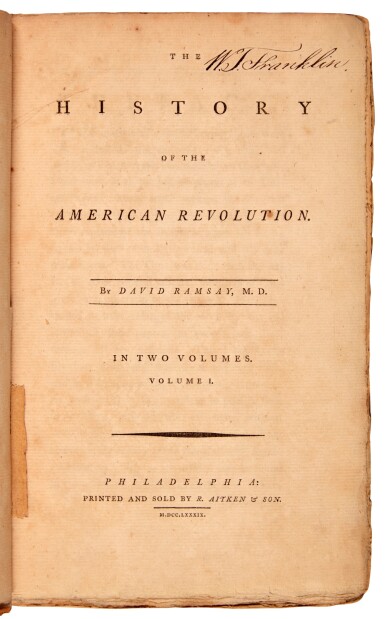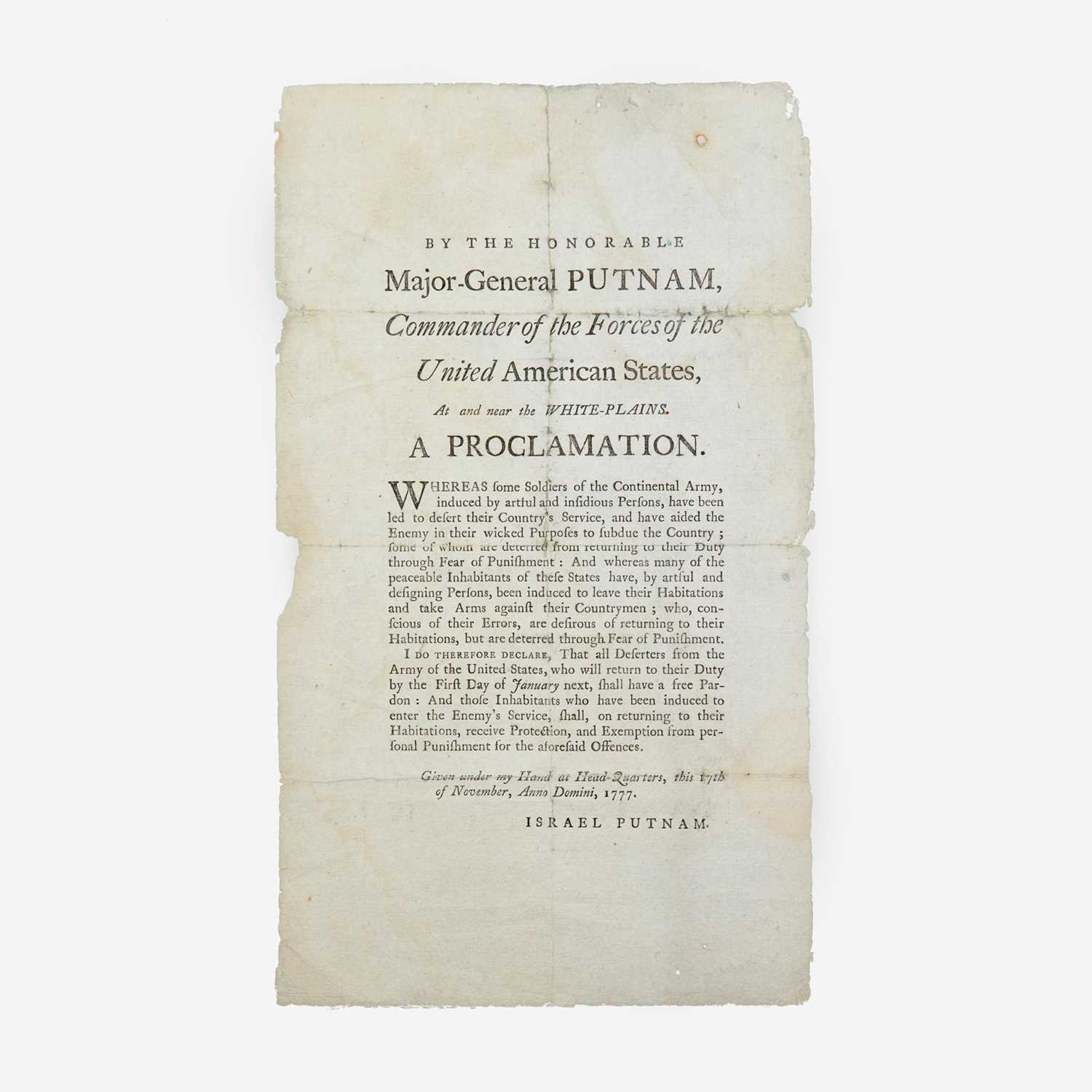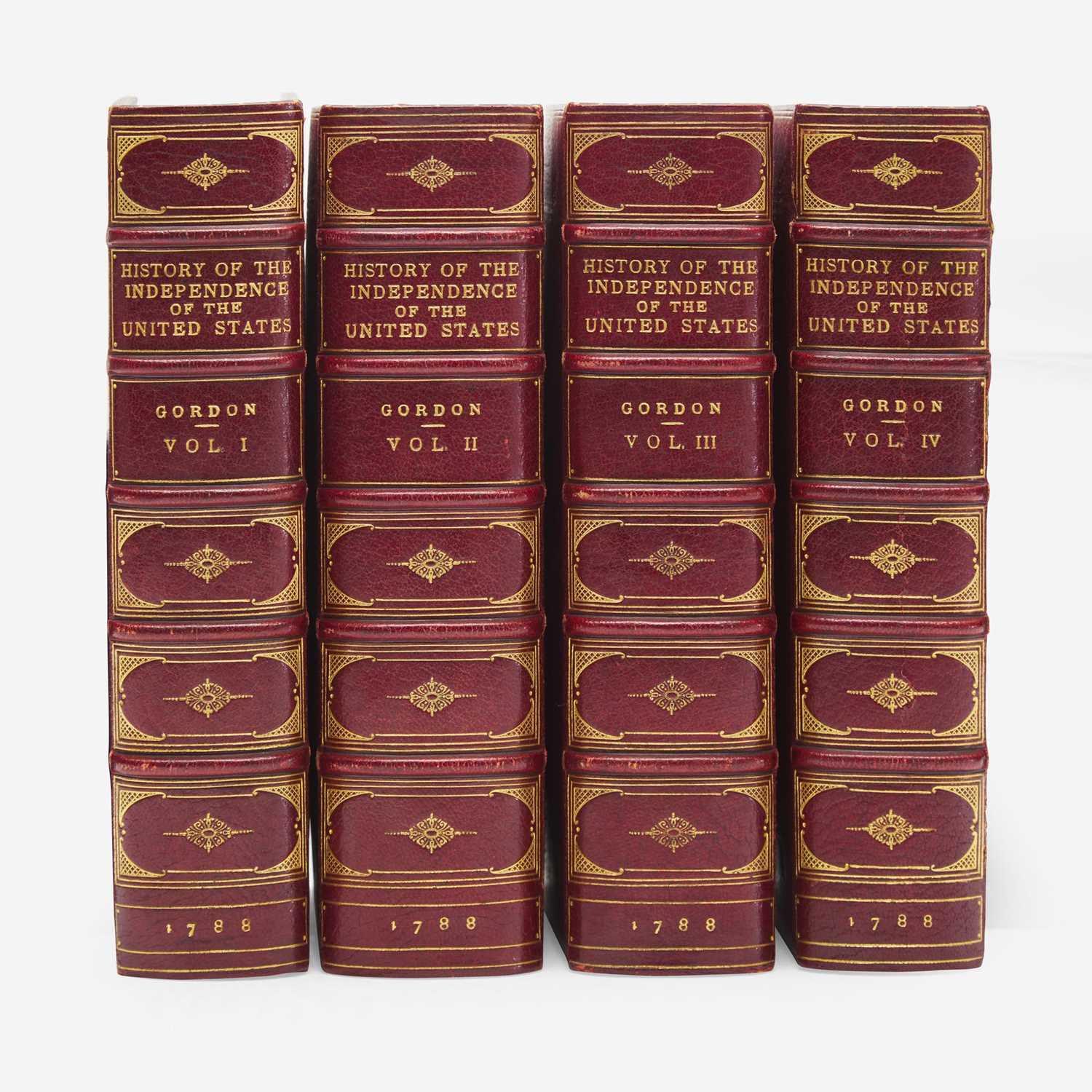Rare Revolutionary War Quaker Epistle Urging Friends to Uphold Their Neutrality and Pacifism
From our General Spring Meeting of Ministers and Elders, held in Philadelphia, for Pennsylvania and New-Jersey...from the 21st of the Third-month to the 24...
(Philadelphia), 1778. One sheet, 13 3/8 x 8 1/2 in. (340 x 216 mm). 2 pp. Printed document, being a Quaker Epistle from the General Spring Meeting of Ministers and Elders, held in Philadelphia; signed in type by Clerk Nicholas Waln. Creasing from contemporary folds; scattered wear and short closed tears along edges; light foxing. Sabin 61683; Evans 15801; Hildeburn, Pennsylvania 3706; ESTC W33435 (locating only six institutions with copies); Not in Smith
A rare Quaker epistle issued during the American Revolution while 20 prominent Quakers remained banished due to their neutrality. It urged fellow Friends to remain steadfast in their faith “in these perilous Times” and to uphold their position of neutrality during the war. The letter outlines their position of neutrality and the importance of becoming subject to Christ’s "pure Government in us, we shall know him to keep us in his Holy Fear; which is not only Wisdom, but a Foutnain of Life, that preserves from the Snares of Death. Thus while Confusion is permitted to spread in the Earth, and amongst the Earthly-minded, those who become true Christians, by knowing his Kingdom to come and his will to be done in them, will be kept out of all Bustles and Noises, and Tumults and Parties, and be enabled to exalt the Pure Standard of the Prince of Peace, in and through an innocent Life and Conversation, seeking the Good of all Men.”
During the war Quakers faced persecution and economic hardship from non-Quaker Patriots and Loyalists for their pacifism and neutrality. Many Quakers refused to take up arms, pay taxes, or use Continental currency that they believed aided the conflict, and were viewed as being against the United States or worse, aiding the British. In 1777, Philadelphia Quakers refused to take an oath of loyalty to the state and lost their right to vote and hold office. When British forces threatened to invade Philadelphia later that year, Quakers refused to help provide for the city's defense or donate goods to Patriot soldiers, resulting in further alienation between Friends and non-Friends. In the fall of 1777 a likely fabricated letter from the Quaker Yearly Meeting at Spanktown, New Jersey (now Rahway) was intercepted and purported that New Jersey Quakers had given military secrets to the British. The Second Continental Congress responded by having 20 prominent Quaker men imprisoned and exiled for their supposed Loyalist sympathies. From September, 1777 through April, 1778, these men were incarcerated without trial in the frontier town of Winchester, Virginia. By the time of their return to Philadelphia seven months later, only 14 had survived their ordeal.
Rare Revolutionary War Quaker Epistle Urging Friends to Uphold Their Neutrality and Pacifism
From our General Spring Meeting of Ministers and Elders, held in Philadelphia, for Pennsylvania and New-Jersey...from the 21st of the Third-month to the 24...
(Philadelphia), 1778. One sheet, 13 3/8 x 8 1/2 in. (340 x 216 mm). 2 pp. Printed document, being a Quaker Epistle from the General Spring Meeting of Ministers and Elders, held in Philadelphia; signed in type by Clerk Nicholas Waln. Creasing from contemporary folds; scattered wear and short closed tears along edges; light foxing. Sabin 61683; Evans 15801; Hildeburn, Pennsylvania 3706; ESTC W33435 (locating only six institutions with copies); Not in Smith
A rare Quaker epistle issued during the American Revolution while 20 prominent Quakers remained banished due to their neutrality. It urged fellow Friends to remain steadfast in their faith “in these perilous Times” and to uphold their position of neutrality during the war. The letter outlines their position of neutrality and the importance of becoming subject to Christ’s "pure Government in us, we shall know him to keep us in his Holy Fear; which is not only Wisdom, but a Foutnain of Life, that preserves from the Snares of Death. Thus while Confusion is permitted to spread in the Earth, and amongst the Earthly-minded, those who become true Christians, by knowing his Kingdom to come and his will to be done in them, will be kept out of all Bustles and Noises, and Tumults and Parties, and be enabled to exalt the Pure Standard of the Prince of Peace, in and through an innocent Life and Conversation, seeking the Good of all Men.”
During the war Quakers faced persecution and economic hardship from non-Quaker Patriots and Loyalists for their pacifism and neutrality. Many Quakers refused to take up arms, pay taxes, or use Continental currency that they believed aided the conflict, and were viewed as being against the United States or worse, aiding the British. In 1777, Philadelphia Quakers refused to take an oath of loyalty to the state and lost their right to vote and hold office. When British forces threatened to invade Philadelphia later that year, Quakers refused to help provide for the city's defense or donate goods to Patriot soldiers, resulting in further alienation between Friends and non-Friends. In the fall of 1777 a likely fabricated letter from the Quaker Yearly Meeting at Spanktown, New Jersey (now Rahway) was intercepted and purported that New Jersey Quakers had given military secrets to the British. The Second Continental Congress responded by having 20 prominent Quaker men imprisoned and exiled for their supposed Loyalist sympathies. From September, 1777 through April, 1778, these men were incarcerated without trial in the frontier town of Winchester, Virginia. By the time of their return to Philadelphia seven months later, only 14 had survived their ordeal.















Try LotSearch and its premium features for 7 days - without any costs!
Be notified automatically about new items in upcoming auctions.
Create an alert